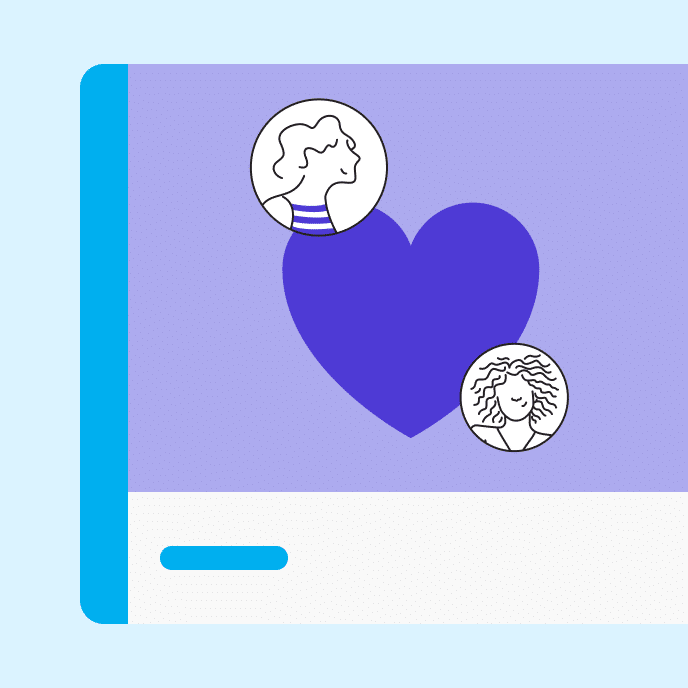4 Essential Customer Service Skills to Train For
These four key training strategies for your frontline teams will dramatically improve customer satisfaction and outcomes.

Why great customer service starts with skills training
Excellent service experiences are vital to business success. One in three customers say they will walk away from a brand they love after just one bad experience, according to a PwC report. Moreover, 86 percent of customers are willing to pay more for great service.
So, how can you improve the customer experience? Top-notch customer assistance starts with dynamic customer service training programs. Effective training equips frontline employees with the knowledge and skills necessary to deliver exceptional customer service at every touchpoint.
Below, we highlight four strategic, customer service training ideas to focus your efforts. Train your frontline team on these skills to foster positive customer relations and drive business growth.
Key Takeaways
What are the most important customer service skills for training?

1. Product knowledge
Strong product or service knowledge empowers customer service agents to answer questions, troubleshoot problems, and make recommendations quickly and accurately. The result? Call handling times and call transfer rates go down, and customers perceive your brand as knowledgeable and trustworthy. Customers will seek and trust the advice from your in-house experts.
Regular product training supplies frontliners with the latest updates and talking points. Keep your team’s offerings knowledge sharp with training on the following topics:
- Current products or services, pricing, and messaging (e.g., features, specifications, capabilities, limitations, policies, and costs)
- How to make personalized product recommendations
- What makes your solution stand out from competitors
- Effective product or service setup and use
- New and upcoming releases
Tip: Consider an e-learning course for product training. That way, team members can refer back to the customer service training materials as needed. Plus, updating the course for new upgrades and feature releases is quick and easy.
2. Active listening and communication skills
Effective listening and good communication skills make clients feel heard, understood, and supported.
First, customer service representatives must ask the right questions and listen to understand customer needs. This step informs a more relevant response. Then, associates must communicate clearly to provide satisfying answers or instructions.
Help your customer support team master the art of communication with related soft skills and emotional intelligence training. For example, develop materials that address how to:
- Greet patrons warmly and make a positive impression
- Maintain a friendly, upbeat, and respectful tone
- Ask questions to identify customers’ needs and expectations
- Listen to make customers feel heard
- Deliver personalized experiences
- Provide clear answers or instructions
- End customer conversations on a positive note
Tip: Reinforce these skills with practice activities. Get creative. In online training settings, for example, you could ask learners to read a real customer email and write a practice response. Or, you might add a real or hypothetical audio clip of a customer phone conversation for your team to dissect and analyze.
3. Empathy and handling upset customers
While some client interactions are pleasant and brief, others can be distressing and complicated.
Customer service employees must strive to provide a positive and helpful service experience, no matter the situation. Otherwise, you risk losing business or even driving a prospect to choose a competitor. That’s why effective conflict-resolution customer service courses are essential.
Give your team the tools they need to turn unhappy clients into raving fans. Below are some ideas to kickstart development of your customer service training program:
- How to cultivate and express empathy when dealing with angry customers
- How to apologize effectively (including starter scripts and examples)
- Responses to common customer complaints
- Fixes for common customer issues
- How to manage unrealistic customer expectations
- De-escalation techniques—including how to deal with an abusive customer
Tip: Use role play scenarios to place customer support associates in challenging, real-world situations that allow them to practice responding to difficult customers without real risk. Provide feedback so that they can head into the real deal with confidence and competence.
4. Customer service team systems and processes
Finally, don’t underestimate the importance of customer support technology, systems, processes training to streamline support and reduce errors. For example, when every customer service agent follows a shared support ticket process they’ll close tickets faster and be less likely to miss or lose customer requests.
Though every company is unique, these are some common customer service process and documentation opportunities:
- How to assign, manage, and track customer support queries or requests
- Where to update customer account information
- When to document customer feedback
- How to issue returns or cancel services
- The process for using team platforms or tools (e.g., CRM software)
Tip: Screen-capture videos can effectively walk employees through internal team processes and technology tutorials.
Conclusion
Happy buyers equal happy suppliers. A well-trained customer service team is the secret to delivering exceptional frontline experiences. Effective training arms customer service agents with the knowledge and skills they need to answer questions, make recommendations, show understanding, solve problems, and build customer relationships. As a result, customers receive better, faster, and more satisfying support that inspires repeat business, referrals, and brand loyalty.
Want tips for getting started? Check out our blog, How to Create Soft Skills Training
You may also like

How To Show Your Boss Why Your E-Learning Is Worth The Money
See how smart e-learning design creates real value through better job skills, less time away from work, reaching more people, and making sure everyone gets good training.

